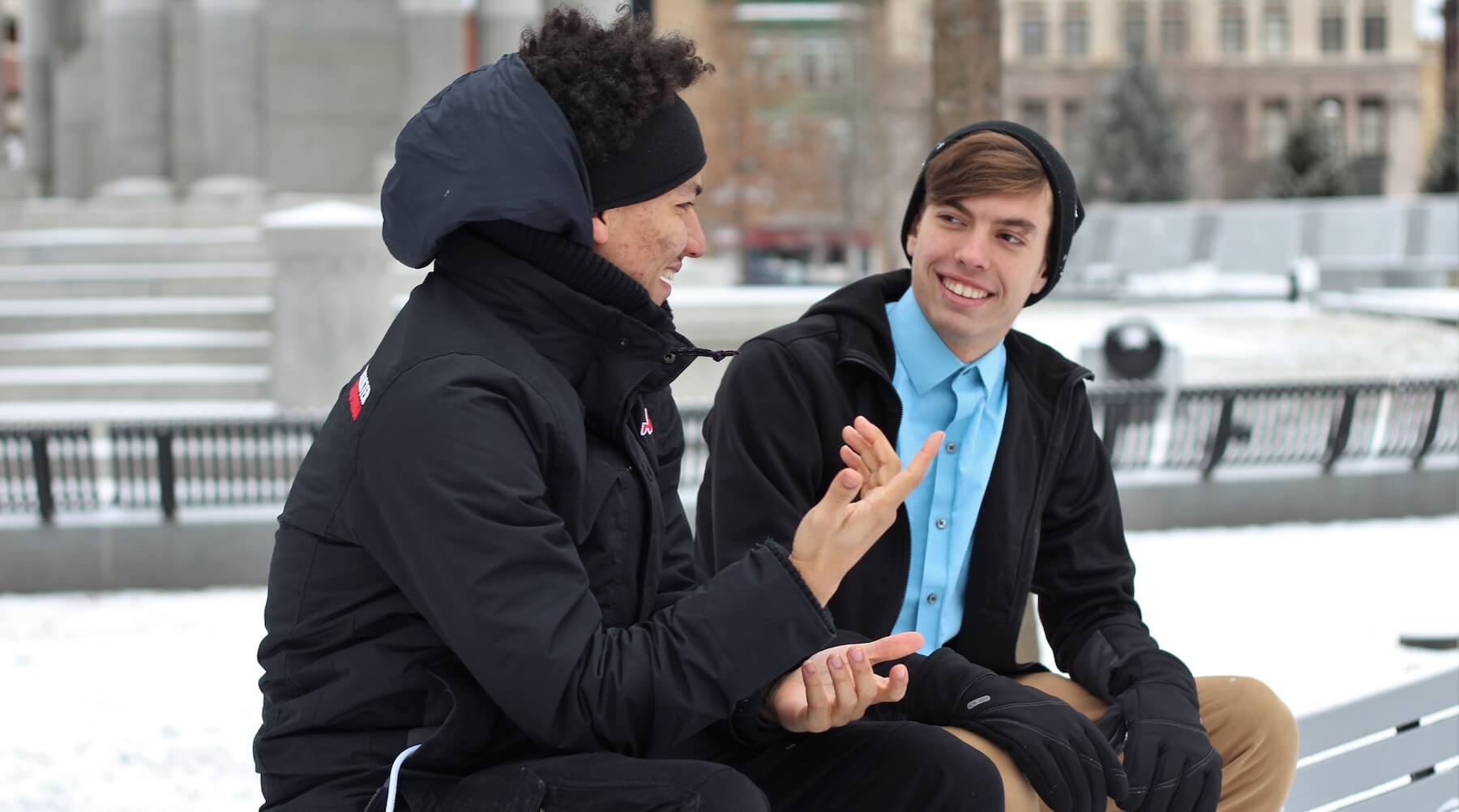Speech, language, and communication are the foundational skills that are vital to literacy. Just as food and water are crucial to survival, communication is the basis of self-expression, an important and necessary life skill.
Yet one in 10 children in the United Kingdom and almost one in 8 in the United States enter school with a speech, language, and communication need (referred to as SLCN). This statistic increases up to 50 percent in areas of deprivation.
Examples of SCLN include problems with producing speech sounds accurately; stammering; hoarseness and loss of voice; problems understanding language or making sense of what people say; difficulty forming words and sentences; and problems interacting with others (i.e. trouble understanding non-verbal cues or using language in different ways to question, clarify or describe things).
Speech, language, and communication needs have a direct impact on children’s development and educational outcomes, health, and wellbeing. In fact, the most accurate indicator of children’s future educational attainment is their vocabulary at the age of five.
If left unaddressed, the absence of critical literacy skills adversely affects children over the course of their lifetime. For example, as many as 60 percent of young offenders and 88 percent of long-term unemployed young men have been found to struggle with SLCN.
As it stands in the U.K., people in need of a speech and language therapist funded by the National Health Service may wait as long as 18 months for an appointment, and rates for a private therapist can reach up to £150 an hour. The cost alone makes therapy a prohibitively expensive option for many in need. While there is an availability and affordability problem for SCLN therapies in the U.K. and U.S., the issue is far more dire in Africa. There is one therapist to every 2,454 people in the U.S., but in Uganda there is only one therapist for every 2.2 million people, and in Zambia there is only one for every six million people.
Gaps in the System
As the education system stands today, it’s generally not equipped with the necessary resources or training to support all children with these issues.
Let’s consider some scenarios. Sandeep’s teacher is running through a phonics exercise, and Sandeep is enjoying reading out loud and showing off his new skills. But when Sandeep is questioned about the topic he has just read – in terms of meaning and understanding – he is unable to respond. This really frustrates him because he can clearly read, but his problem is comprehension.
This is a current problem, some would argue, with education. While phonics is being treated as the main stepping stone towards literacy, less attention is given to making sure children grasp the content of what they are learning. So a child can read and speak but may not be able to process or understand the information.
Speech, language, and communication needs have a direct impact on children’s development and educational outcomes, health, and wellbeing.
Giulia is three years old, and her nursery teacher has picked up that she’s not hitting the speech and language milestones. Unfortunately, there is an 18-month waiting list to see a therapist in her area. This will affect her ability to have the foundational skills for literacy. Thus, when she starts school in 18 months, she will be left behind by her peers. Early intervention is crucial.
Karl is 11 and on the autistic spectrum, meaning he needs constant support to help him build the social skills he needs to thrive in the world. There are over 30 children in his class, and his teacher struggles to extend the one-to-one support required to help him be the best he can be.
These scenarios represent the reality for so many youth around the world right now. In the U.K. alone, every £1 spent on therapy for developmental language disorders returns £6.43 back to society through increased lifetime earnings. Despite this positive return on investment, government resources in speech and language provision are too often limited in supply which affects the intensity of support they can provide.
Innovative, cost-effective, and more efficient ways to deliver vital help at scale could improve the lives of millions.
A Solution for Millions
Approximately 220 million children around the world struggle with speech and language issues. I founded Iris Speaks to make it easier for them to get the attention and support they need by digitizing the delivery of speech and language therapy.
Iris Speaks is a secure online platform that delivers therapy via live video and interactive on-screen activities. We work with experienced therapists who require flexible hours, and we match them with families who often need support outside of school hours.
Most of the time, speech and language therapy happens at school without the incorporation of parents. We collaborate with them to create progression targets which we share with the school to ensure the child’s whole environment is working holistically. We’re just starting to see some results with our initial cohort. Right now, we have over 1,000 families signed up to our free programs, and we are taking this cohort through the first course of online therapy.
Iris Speaks at Work
Building Relationships
Harjit is Lorenzo’s mom. Lorenzo is eight and currently in his 4th year at primary school in the U.K. Lorenzo had been discharged at age five from NHS therapy as it was perceived that he’d completed the allocated course of therapy available through the state. He still struggles with social communication, expressive language, and verbal reasoning. The lack of social communication concerns Harjit the most. Lorenzo wants to learn to make friends, as social inclusion is important at such a young age. However, he’s not able to understand how to initiate and maintain friendships.
With the Iris Speaks platform, Harjit and Lorenzo are working on understanding Lorenzo’s own feelings and the feelings of others. They are looking at expected and unexpected behaviors and building foundational skills to help him socially. Social skills are a huge area of need for Lorenzo as they are essential for inclusion in society.
“The sessions have been fun and also very useful into gaining a better understanding of the challenges that Lorenzo has and is faced with,” says Harjit. “Plus, he wants to be able to make friends. Progress has been baby steps, but that is to be expected due to the nature of his learning difficulties. But, progress has definitely been made.”
Expanding Vocabulary
Sarah is Alfie’s mom. Alfie is four, and his speech is severely delayed. Sarah wants Alfie to have the best start when he enters school later in the year. Their NHS therapist is great, but they don’t get the frequency of sessions that Sarah feels Alfie needs to progress in this limited timeframe.
Together, Sarah and Alfie are working on expanding Alfie’s vocabulary and building their play repertoire to support Alfie’s communication development.
“Alfie is really engaged in the sessions with Alys, which is just fabulous!” says Sarah. “I’m glad I started this process, and although it’s early days, I’m excited for the future and what he can achieve.”
Understanding Emotions
Yuliya is Liza Mar’s mom. Liza Mar is 11 and in her final year at primary school. She loves to read and write, doing so for hours on end. She was recently diagnosed with a form of autism that inhibits her ability to comprehend everything she has read. Later in the year, she will go to high school, and Yuliya wants to prepare her daughter as best as she can for this change.
Yuliya and Liza Mar are working on following complex instruction, explaining the meaning of words, reasoning, and inferring information. They are also tackling Liza Mar’s struggle to understand theory of mind, which is the ability to interpret mental and emotional states and understanding that each person has their own unique motives and perspectives.
“Liza Mar, who takes part in a number of after-school activities, is quite a busy girl, and Iris Speaks offers a great solution to the perpetual time deficit problem. We don’t need to travel anywhere, as the therapy takes place in my living room,” says Yuliya.
A Simple Alternative for a Literate Future
Iris Speaks learns from these sessions and activities. We collect data points that, over time, enable us to calculate the maximum intensity of each session. This information also tells us which interventions and activities (both on and offline) allow the child to receive the quickest, most effective outcome. The goal is to reduce the cost of much-needed therapy for families, increase the outcomes of students, and increase access to therapy for those who need it most.
So far, we’ve helped over 1,000 children, but we want to help millions more. At Iris Speaks, we want everyone around the world to have access to speech and language therapy at the most effective time of intervention. Strong communication skills lay the foundation for future literacy skills and can prevent debilitating disadvantages such as inability to gain employment due to communication inefficiency.
Our work thus far proves that by providing students and their families with simple alternatives to standard speech therapy, we have the opportunity to influence the future literacy skills of young people all over the world.



